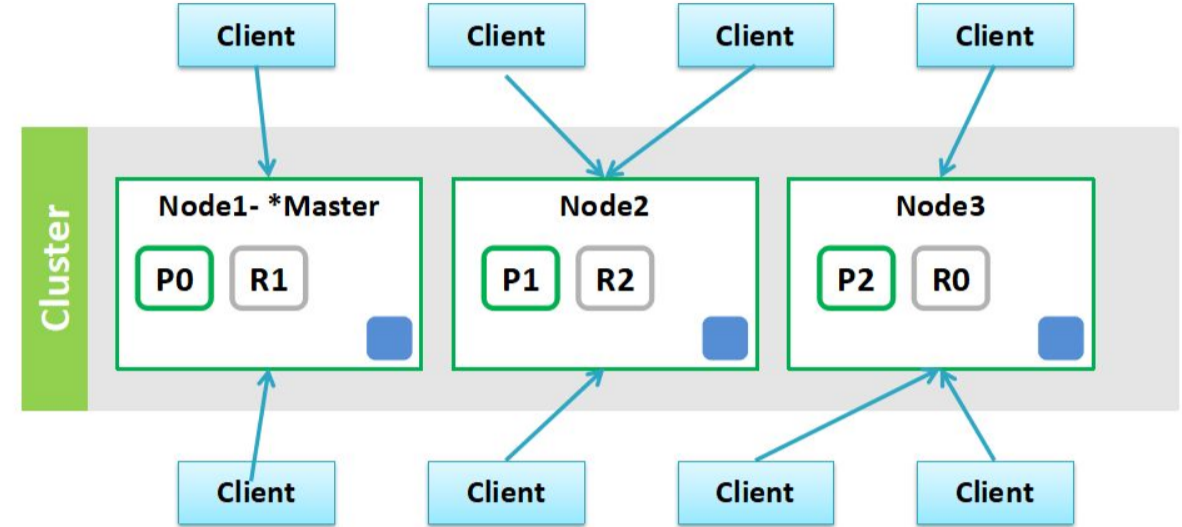Elasticsearch索引与文档管理API实战指南:生产环境最佳实践

- Elasticsearch集群架构图
一、索引管理实战
1. 索引创建策略
基础索引创建(生产环境推荐配置)
PUT http://10.0.0.91:9200/prod-logs-2024
{
"settings": {
"number_of_shards": 5,
"number_of_replicas": 1
}
}
生产建议:
- 分片数根据数据量预估(单个分片建议30-50GB)
- 副本数根据集群节点数设置(至少1个保证高可用)
- 使用日期后缀命名便于生命周期管理
自定义分片配置
PUT http://10.0.0.91:9200/transaction-records
{
"settings": {
"number_of_shards": 10,
"number_of_replicas": 2
}
}
2. 索引查看与监控
查看索引健康状态
GET /_cat/indices?v&health=yellow
查看分片分布
GET /_cat/shards/oldboyedu-linux92
3. 索引动态调整
副本数热更新
PUT /oldboyedu-linux92/_settings
{
"index" : {
"number_of_replicas" : 2
}
}
索引别名管理
POST /_aliases
{
"actions" : [
{ "add" : { "index" : "oldboyedu-linux92", "alias" : "current_logs" } }
]
}
4. 索引删除保护
PUT /_cluster/settings
{
"persistent": {
"action.destructive_requires_name": true
}
}
二、文档管理实战
1. 文档CRUD操作
安全创建文档(自动ID生成)
POST /orders/_doc
{
"order_id": "20240715-001",
"amount": 2999.00,
"products": ["手机", "保护壳"]
}
条件更新文档
POST /orders/_update/1
{
"script" : {
"source": "ctx._source.quantity += params.quantity",
"lang": "painless",
"params" : {
"quantity" : 4
}
}
}
2. 批量操作API
高效批量写入
POST /_bulk
{ "index" : { "_index" : "user_behavior", "_id" : "20240715001" } }
{ "user_id": 1001, "action": "click", "timestamp": "2024-07-15T14:30:00" }
{ "create" : { "_index" : "user_behavior", "_id" : "20240715002" } }
{ "user_id": 1002, "action": "purchase", "amount": 150 }
智能批量读取
GET /_msearch
{"index" : "user_behavior"}
{"query" : {"match" : {"action" : "click"}}}
{"index" : "orders"}
{"query" : {"range" : {"amount" : {"gte" : 1000}}}}
3. 生产环境优化建议
-
索引设计规范
- 使用模板管理索引设置
PUT /_index_template/logs_template { "index_patterns": ["logs-*"], "template": { "settings": { "number_of_shards": 5, "codec": "best_compression" } } } -
写入性能优化
- 批量文档大小控制在5-15MB
- 使用自动生成的文档ID
- 适当增加refresh_interval
PUT /logs/_settings { "index" : { "refresh_interval" : "30s" } } -
查询优化技巧
- 使用_filter代替query进行过滤
- 避免深度分页(推荐使用search_after)
- 合理使用字段映射
PUT /products { "mappings": { "properties": { "price": { "type": "scaled_float", "scaling_factor": 100 } } } }
三、实战练习:电商数据分析
1. 创建电商索引
PUT /ecommerce-products
{
"settings": {
"number_of_shards": 5,
"number_of_replicas": 1
},
"mappings": {
"properties": {
"title": { "type": "text", "analyzer": "ik_max_word" },
"price": { "type": "scaled_float", "scaling_factor": 100 },
"category": { "type": "keyword" },
"attributes": { "type": "nested" }
}
}
}
2. 批量导入数据
POST /_bulk
{"index":{"_index":"ecommerce-products"}}
{"title":"智能手机 X1 Pro","price":3999.00,"category":"电子产品","brand":"X-Mobile"}
{"index":{"_index":"ecommerce-products"}}
{"title":"智能手表 S2","price":899.00,"category":"穿戴设备","brand":"TechLife"}
3. 复杂查询示例
GET /ecommerce-products/_search
{
"query": {
"bool": {
"must": [
{ "match": { "title": "智能" } },
{ "range": { "price": { "gte": 1000 } } }
]
}
},
"aggs": {
"category_stats": {
"terms": { "field": "category" },
"aggs": { "avg_price": { "avg": { "field": "price" } } }
}
}
}
四、安全与维护
1. 索引保护策略
PUT /_snapshot/my_backup/snapshot_1
{
"indices": "important_data",
"ignore_unavailable": true,
"include_global_state": false
}
2. 权限控制示例
# elasticsearch.yml配置
xpack.security.authc:
realms:
native:
native1:
order: 0
附录:JSON基础速查表
| 数据类型 | 示例 |
|---|---|
| 字符串 | "服务器日志" |
| 数值 | 2024, 3.1415 |
| 布尔值 | true, false |
| 数组 | ["错误", 500, true] |
| 对象 | {"error": {"code": 500}} |
最佳实践提示:定期使用
_cat/indices?v监控索引状态,结合ILM策略实现自动化的索引生命周期管理。





 浙公网安备 33010602011771号
浙公网安备 33010602011771号